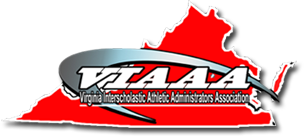The VIAAA will offer our Annual Leadership Training Program Summer Institute at Fluvanna County High School in Palmyra, Virginia on July 14-15, 2025. The institute will offer eight leadership training courses during this two-day workshop.
The cost for the institute is based on the number of courses a student takes. See the listing below 1 course - $100.00 2 courses - $190.00. Late Registration Fee after July 7, 2025, is $10.00 for one course and $20.00 total for more than one course.
ONLINE REGISTRATION INFORMATION (Pay Online with a credit card or by check): https://viaaa.finalforms-amp.com/events. If you do not have an AMP account, email Lisa Corprew at lcorprew@vbschools.com to request access.
For hotel reservations: The VIAAA has contracted a special rate for this event of $139 plus tax. This rate includes free internet access and a hot breakfast bar. The block of rooms is located at the Hampton Inn, 10800 James Madison Hwy., Gordonsville, Virginia, 22942. When making a reservation by phone, please call 434-207-2354, and mention the group code for this event:VIAAA. For online reservations, use this link: Booking Link. RESERVATIONS NEED TO BE MADE PRIOR TO JULY 1, 2025 (to ensure you receive this rate and a room).
We recommend you bring a laptop or device to access course information.
For additional information, contact Derek Farrey at 703-431-4763 (Cell) or email Derek.Farrey@lcps.org
The following courses will be offered:
Monday, July 14, 2025, at Fluvanna County HS from 1-5pm
LTC 617: Administration of Interscholastic Sports Medicine Programs
This course will examine the role of the athletic administrator and other school administrators in supporting and developing the interscholastic sports medicine program within a school or district. Coverage will include: (1) philosophy of sports medicine services; (2) roles and responsibilities of the certified athletic trainer (A.T.C.); (3) roles of other members of the sports medicine team; (4) the high school sports medicine center – specifications and equipment; (5) helping parents, athletes, and the general public understand the role of athletic trainers; (6) legal issues and risk management strategies; and (7) contemporary administrative issues and response strategies. A series of appendices will also be developed to provide athletic administrators and athletic trainers with helpful information.
LTC 619: Enhancing Event Experiences Through Curb Appeal
This course highlights areas which the athletic administrator should consider prior to hosting visiting schools, spectators, and participants for athletic events. The opinion of a school, the community, and the school’s administration are often formed based on first impressions experienced when attending an athletic event. These impressions/experiences are built upon not only the visual appearance of the facility but the overall preparedness of the facility from entering the main gate, sitting in the stands, and leaving upon completion of the event. The course discusses the power of being prepared, and how communications can enhance the fans overall game experience. Strategies, methods, and illustrations will provide for maintaining structures through a comprehensive study of “best operational management practices” geared toward an enjoyable fan experience.
LTC 621: Basics of Synthetic Turf Install
This course incorporates a guided chronological approach for turf installation. Prior to installation, an athletic administrator must ask a few questions: What is involved in appraising the need to install a synthetic turf field? Who will be the team of stakeholders making the decisions? What is the suggested approach to guiding those decisions? This course also includes suggested preparation, guidance, and training for the athletic administrator to make a recommendation to install a synthetic turf field. Athletic administrators will be given direction on how to choose which personnel are fit to oversee the project, differentiate between all synthetic turf products, finance the project, and consider risk management. Information supporting the on-going needs after installation such as testing and training, field life, and the equipment needed for maintenance and safety will be covered.
LTC 625: Management of Game and Event Announcing
This course is designed to assist athletic administrators in understanding their role in managing public address (P.A.) announcing at their contests and events. Topics include the role of the athletic administrator in hiring, training, and evaluating announcers; developing expectations for their announcers and strategies for communicating the role of the public address announcer in an interscholastic setting. Course points include guidelines and code of conduct for P.A. announcers; the role of the announcer in promoting good sportsmanship; guidelines for script writing/editing; developing emergency situation/security announcements and discussion/examples of “do’s” and “don’ts” of public address announcing.
LTC 627: Administration of Interscholastic Sports Strength & Conditioning Program
Strength and conditioning programs have become an integral part of the overall success of today’s athlete as well as enhancing lifelong health and fitness for all students. This course will examine the role of the athletic director and other school administrators in supporting and developing the strength and conditioning programs within a school or district setting. Topics will include: 1) the philosophy and mission behind strength and conditioning; 2) roles and responsibilities of various athletic personnel including certifications and professional standards; 3) program management and assessment within a scholastic environment; 4) the organization and administration of a highly functioning strength & conditioning program, and (5) the development and design of a fitness facility including risk management strategies and financial issues.
Tuesday, July 15, 2025 at Fluvanna County HS from 9am-1pm
LTC 715 Athletic Administration: Appropriate Professional Boundaries: Identifying, Implementing and Maintaining
This course will assist in identifying professional boundary awareness as it relates to interaction between student and educator. It examines and describes several categories of boundary issues and attempts to create a pathway to a proactive approach for the school administrator to formulate a professional Code of Conduct. Several examples of legal statutes and reporting mandates that all school employees should become familiar with will be examined. The course will provide guidance in developing educational responsibilities by offering suggested training mandates and reporting rules. Identifying roles of victims, offenders, and bystanders will be defined. Examples and best practice techniques in developing useful social media policies will be discussed.
LTC 717: Identifying the Need For and Effecting Change in Athletic Administration
The purpose of this course is to assist athletic administrators in navigating change. Gaining an understanding of change related to process, policy, mindset, systems, and culture is critical to developing an appropriate change model. Additionally, gaining context in various aspects of change such as identifying stakeholders, potential solutions, and the inevitable roadblocks will allow athletic administrators to avoid setbacks that can lead to failure.
LTC 719: Leadership, Management/Supervision and Decision Making Concepts, Methods and Applications
This course examines relevant strategies and principles that can be utilized to enhance the skills of the athletic administrator in the areas of leadership, management, and decision-making. Learning begins with an introduction to the differences between leadership, management, and supervision, and continues with an in-depth investigation of each. Through the analysis of specific leadership and management characteristics and techniques, administrators will be able to apply specific skills to improve their leadership effectiveness. Concepts and techniques of decision-making strategies are discussed and demonstrated through various in-class exercises. Appendices provide relevant materials, instruments, and assessment procedures that support text materials and principles.
LTC 721: Positive Sporting Behavior – For the Love of the Game
In this course administrators will learn to implement appropriate strategies and techniques designed to create a positive, productive learning environment, which will support a system that encourages character, self-discipline, and sportsmanship. This class will provide opportunities for self-assessment and reflection in regards to prior performance. In addition, administrators will participate in class discussions and activities. This will increase their knowledge and skills of the effective components of successful character, citizenship, and sportsmanship to share with their students, coaches, parents, and communities.
LTC 723: Administration of Professional Growth Programs For Interscholastic Athletic Personnel
Providing continual professional development and education for coaches is one of the 14 legal responsibilities of athletic administrators, therefore creating a need to ensure that all coaching staff at all levels are trained at the highest level. This course will show athletic directors how to further continuing efforts. Professional development should be based upon the National Standards for Sport Coaches and would include individual school-sponsored programs, state association requirements, and professional providers such as the National Interscholastic Athletic Administrators Association (NIAAA) Professional Development Academy, the National Federation of State High School Associations (NFHS) Coach Education program, and the American Sport Education Program (ASEP).

.jpg)
1.jpg)






